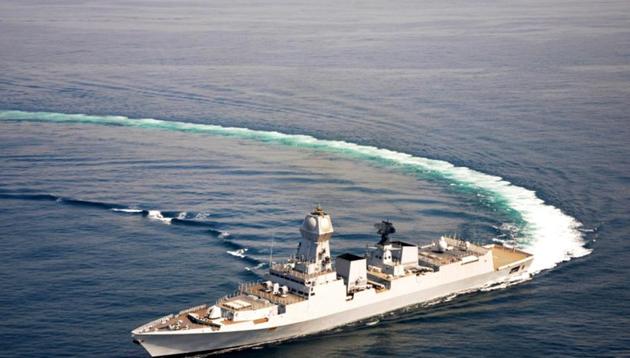‘Redesign coastal road pillars to minimise damage to marine life’: Mangrove Foundation
In a report submitted to the Brihanmumbai Municipal Corporation (BMC), the Mangrove Foundation has suggested changing the design of the pillars of the coastal road project to minimise damage to marine life and coastal ecology. Mangrove Foundation, an autonomous body, was commissioned by the BMC in April to study what impact the coastal road may have on marine life.

The report – a copy of which is with HT – is titled “A roadmap for mitigation of expected marine biodiversity and fishery loss due to Mumbai Coastal Road Project” and contains suggestions for reducing environmental damage caused by the project.
Civic chief Praveen Pardeshi said, “We will induct all the suggestions and in fact, we will also use a new material, eco-concrete, for all the portions which will be submerged and near the sea to make sure that the marine life thrives there. The cost may escalate marginally, but it is more than worth the environmental benefits.”
Among its suggestions is changing the design of the pillars from plain concrete to corrugated structures with uneven external configurations which would be like artificial coral reefs. The report claims a vast diversity of marine life could be supported by this change, which will not compromise the road’s structural strength. The Mangrove Foundation has also suggested an intertidal environment be created parallel to the sea wall, which will be built to protect the coastal road, by placing large rocks or concrete structures in selected areas so that they are exposed during low tide and submerged during high tide. A senior officer said, “We are also in talks with an Israeli company to translocate the existing coral to a different location successfully.”
The report also recommends Lotus Jetty be conserved or an alternative arrangement should be made for mooring space. The officer said the jetty would not be damaged and that the BMC would help repair the damaged jetty.
Damodar Tandel, president of the Akhil Maharashtra Macchhimar Kriti Samiti, said, “The Mangrove Foundation says that they will transplant the coral reefs as they did in Sindhudurg, but they should consider that the amount of pollution there and in Mumbai is totally different. When we go fishing even five kilometres into the sea, the nets ware filled with plastic trash and so we have to venture 20 kilometres for a good catch.”
The report also says that the reclamation of 90 hectares of land for the project – the intertidal region between Priyadarshini Park to Amarson Garden to Haji Ali, and Baroda Place to Worli – will impact the harvesting of lobsters, oysters, clams and the livelihood of fishermen in the region. However, the BMC has already reclaimed about five to seven hectares out of the 90 hectares.
The extent of economic loss to fishermen will be known only after the Central Marine Fisheries Research Institute (CMFRI) submits its detailed report. The CMFRI is conducting a parallel study of how fishermen may be affected by the project.



